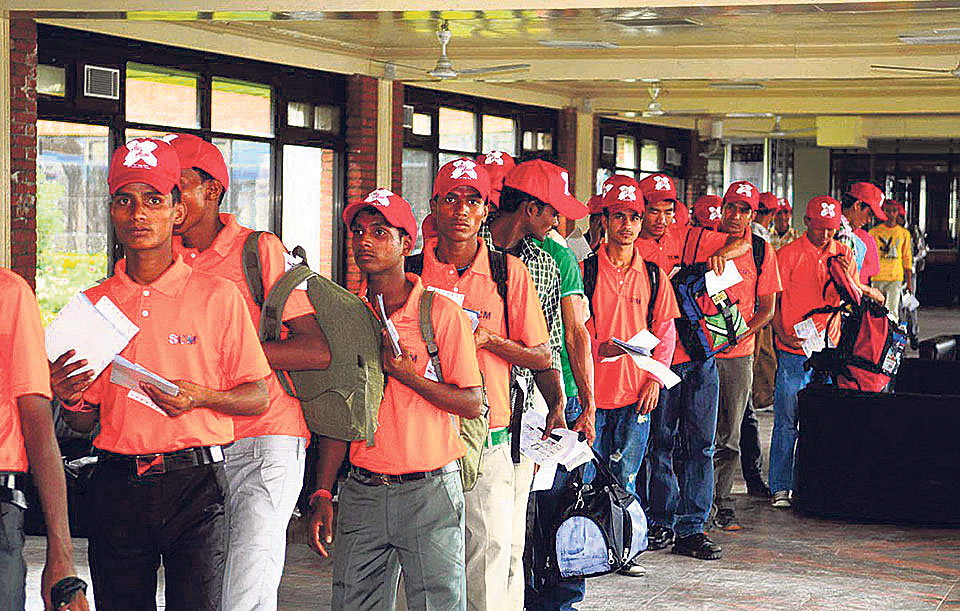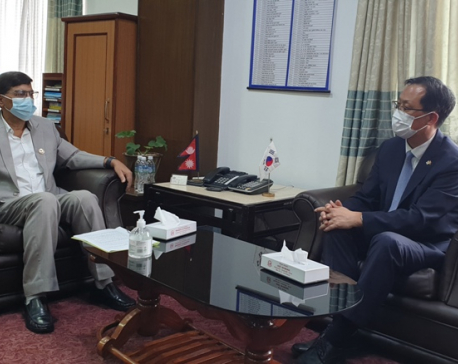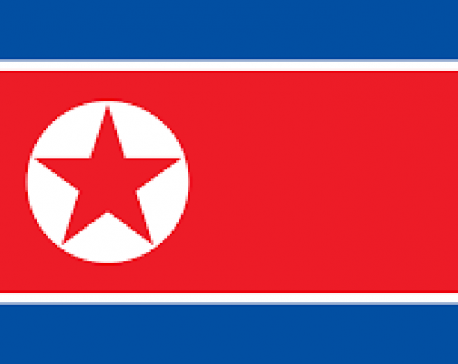
OR
Korea-bound workers called for completing official procedures for job placement
Published On: October 6, 2021 06:30 AM NPT By: Republica | @RepublicaNepal

KATHMANDU, Oct 6: The South Korean government is resuming job placement for eligible Nepali workers that has been suspended for the past 20 months.
The Department of Foreign Employment (DoFE), in this regard, has summoned 119 Nepali workers who have been waiting for their turn to complete the official procedures by October 11. The department has asked individuals who were permitted for job placement as ‘committed workers’ to fill up CCVI forms within the prescribed date.
According to a public notice issued by the DoFE, the Korean authorities will be allowing 50 individuals in the first lot to work in Korea. “The rest of others will successively be considered under priority based on issuance date for their work permits,” reads the DoFE’s notice.
Korea is one of the most lucrative destinations for Nepali migrant workers. Citing the spread of the coronavirus, the South Korean government since February 2020 has stopped accepting Nepali workers for employment. Due to this reason, more than 6,700 individuals who have cleared the Test of Proficiency in Korean, a mandatory Korean language test, and the skill test, have been unable to go to Korea for job placement.
These individuals were set for the jobs there for 2020. Many of them had even received their contracts from the employers and the Certificate for Confirmation of Visa Issuance, the authorized document, which during normal time allows the candidates to go to Korea within 90 days.
Despite repeated requests from the Nepali side, the South Korean authorities have been refusing to issue permits to the Nepali workers showing the pretext of the pandemic. Last July, in a meeting with Finance Minister Janardan Sharma, the Korean Ambassador of the Republic of Korea to Nepal, Park Chong-suk, assured to consider the migrant workers eligible under the Employment Permit System (EPS) who have been waiting for their turns to go to South Korea.
Korea has maintained the conditions that there should be a direct flight from Kathmandu to Seoul, Nepali workers must stay in quarantine for 14 days and that the workers should bear the cost to allow Nepali workers there. After the Nepali side agreed to accept these three conditions, Korea has made the biometric system mandatory to resume the stalled employment.
You May Like This

Govt urges South Korea to allow entry of Nepali workers through regular flights
KATHMANDU, March 8: The government on Monday urged the South Korean authorities to allow the Nepali workers who have already been... Read More...

Workers eligible under EPS and waiting for their turns will be soon permitted for employment in Korea: Korean envoy
KATHMANDU, July 28: Ambassador of the Republic of Korea to Nepal, Park Chong-suk, on Wednesday said that the Korean government will... Read More...

North Korea conducts public executions for theft, watching South Korea media: report
SEOUL, July 19: North Korea carries out public executions on river banks and at school grounds and marketplaces for charges such... Read More...









Just In
- Forced Covid-19 cremations: is it too late for redemption?
- NRB to provide collateral-free loans to foreign employment seekers
- NEB to publish Grade 12 results next week
- Body handover begins; Relatives remain dissatisfied with insurance, compensation amount
- NC defers its plan to join Koshi govt
- NRB to review microfinance loan interest rate
- 134 dead in floods and landslides since onset of monsoon this year
- Mahakali Irrigation Project sees only 22 percent physical progress in 18 years









Leave A Comment